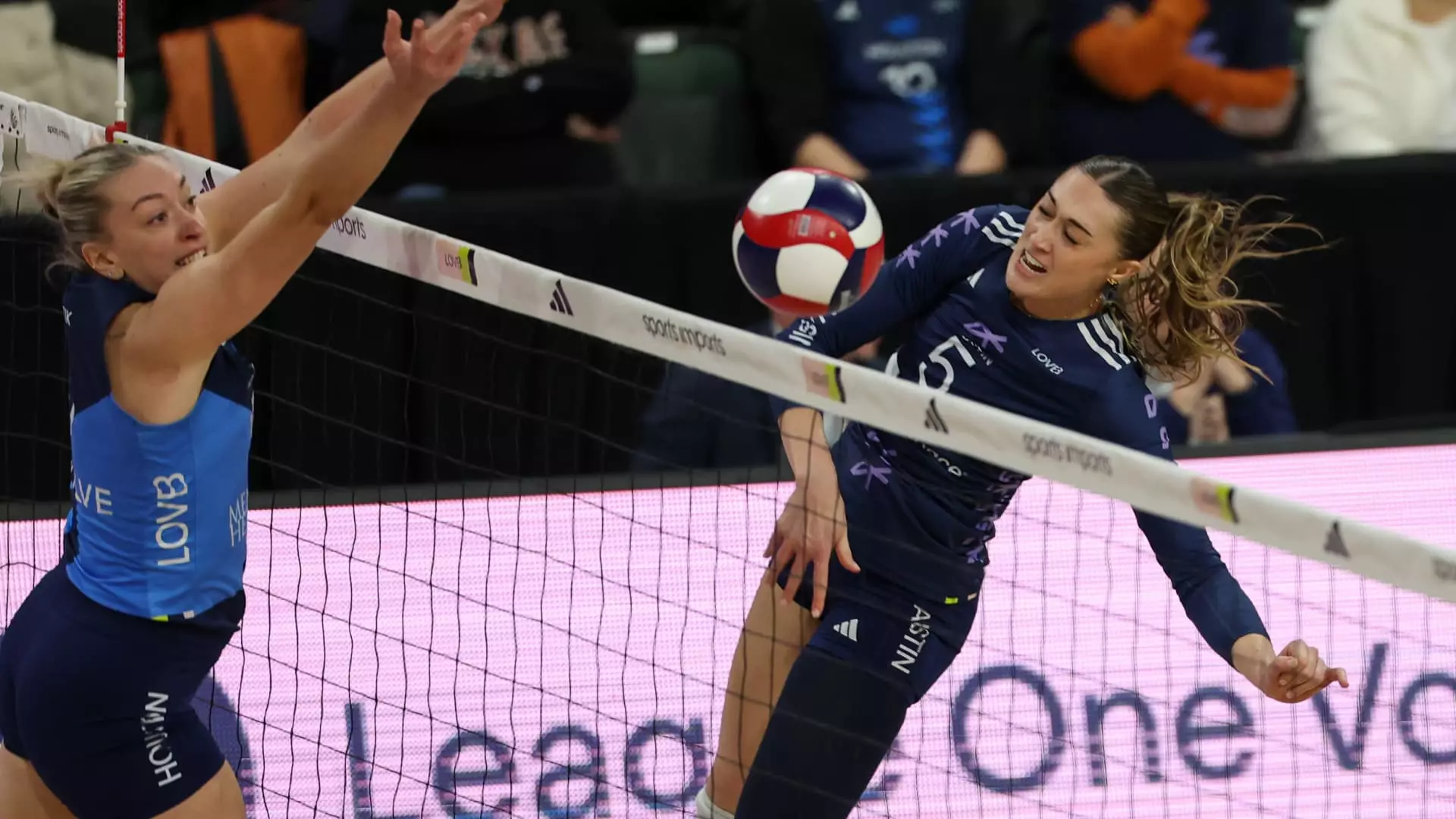In an era where gender disparities persist across various sectors, the increasing prominence of women’s sports signifies a vital stride toward equality and recognition. The recent partnership between Versant and League One Volleyball (LOVB) exemplifies this shift, carving out a new frontier for women’s volleyball to thrive on national television. Far from being a mere business deal, this move embodies a broader cultural evolution—championing the values of inclusivity, diversification of sports narratives, and empowering female athletes. It is a testament to the progressive vision that recognizes women’s sports not just as entertainment, but as a vital force for societal change.
Combatting Historical Neglect with Strategic Investment
Historically, women’s sports have often been relegated to peripheral coverage, overshadowed by male counterparts and constrained by outdated stereotypes. The new media rights deal signifies a deliberate attempt by Versant, a company poised to redefine its role post-spinoff, to counteract this longstanding neglect. Using the platform of national primetime broadcasting via USA Network—traditionally associated with mainstream content—Versant is making a bold statement: women’s volleyball deserves prominent, consistent exposure. This isn’t just about rates or ratings; it’s about reshaping perceptions and elevating the sport’s societal value, affirming that women’s athletic achievements are worthy of applause and acknowledgment at the highest levels.
Economic Power Meets Social Responsibility
While some skeptics might dismiss this as a commercial ploy, it’s undeniable that sports are a potent vehicle for social progress. The economic implications of such deals are significant—millions of eyeballs, increased sponsorships, and broader youth engagement dismantle barriers that previously stifled the growth of women’s volleyball. The fact that Versant’s previous deals include lucrative partnerships with entities like NBCUniversal and the LPGA signals an understanding that supporting women’s sports is not only ethically correct but financially astute in a shifting media landscape. Prioritizing women’s sports aligns with a progressive center-wing liberal outlook—acknowledging diversity, fostering inclusion, and investing in marginalized groups. It’s about shifting the paradigm toward a more equitable sporting future.
Amplifying the Voice of a New Generation
The surge in volleyball participation across schools and colleges reflects an undeniable cultural movement. Record-high high school participation and skyrocketing viewership figures for NCAA tournaments demonstrate a genuine shift in audience engagement. These numbers are not accidental; they signal a young, diverse generation craving representation and authentic stories of resilience, talent, and passion. The media’s role in this context isn’t just about broadcasting games; it’s about fostering a cultural shift where women’s sports are perceived as integral components of national identity—worthy of attention, respect, and sustained investment.
Challenging Commercialization with Purposeful Progress
Of course, critics might argue that such deals are driven solely by market motives or corporate branding. But true progress recognizes that commercial success and social responsibility are mutually reinforcing—particularly when it promotes greater societal good. The partnership between Versant and LOVB exemplifies how capitalism can propel social change, countering the narrative that profits and purpose are mutually exclusive. It showcases a future where the media landscape embraces diversity, and where the celebration of women’s sports becomes an essential part of the broader liberal democrat vision—an arena where everyone has a stake and voice.
The Broader Implication: A Turning Point in Women’s Sports
This collaborative effort is more than a business story; it signals a cultural turning point in how women’s sports are valued and perceived. By securing primetime slots and national exposure, volleyball is ascending from niche interest to mainstream consciousness, challenging traditional sports hierarchies rooted in gender inequity. This transformation is emblematic of a society slowly but surely embracing pluralism, recognizing that gender equality in sports is not a distant ideal but an achievable reality—an earnest step towards a more just and inclusive future.

